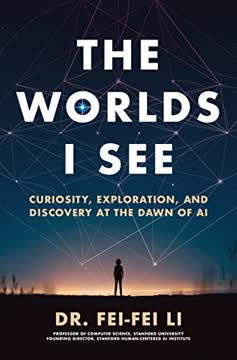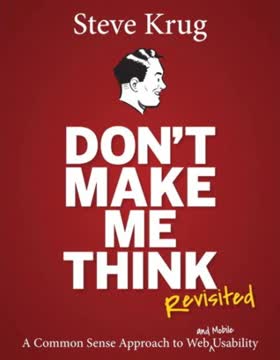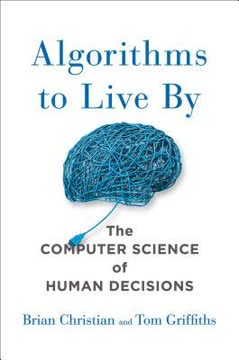ключевых вывода
1. Осмысление: Искусство культурного исследования в мире, управляемом данными
Осмысление — это метод практической мудрости, основанный на гуманитарных науках.
Целостное понимание. Осмысление — это подход, который сочетает культурное исследование, качественные исследования и мышление, основанное на гуманитарных науках, чтобы получить более глубокое понимание человеческого поведения и социальных контекстов. Это противопоставляется редукционистским, основанным на данных методам, преобладающим в современном бизнесе и технологическом ландшафте.
Пять принципов осмысления:
- Культура — не индивиды
- Глубокие данные — не только поверхностные данные
- Саванна — не зоопарк
- Креативность — не производство
- Полярная звезда — не GPS
Этот подход подчеркивает важность понимания общих культурных значений, богатой контекстуальной информации, наблюдений из реального мира, креативных инсайтов и целостных перспектив в осмыслении сложных человеческих явлений.
2. Ограничения алгоритмического мышления Кремниевой долины
Когда мы сосредотачиваемся исключительно на жестких данных и методах естественных наук — когда мы пытаемся количественно оценить человеческое поведение только как множество кварков или виджетов — мы подрываем нашу чувствительность ко всем формам знаний, которые не являются редукционистскими.
Критика техноцентричного мировоззрения. Автор утверждает, что мышление Кремниевой долины, с его акцентом на алгоритмы, большие данные и разрушительные инновации, часто не улавливает нюансов человеческого опыта и культурного контекста.
Ограничения алгоритмического мышления:
- Чрезмерная зависимость от количественных данных
- Пренебрежение культурными и историческими знаниями
- Предположение, что все проблемы можно решить с помощью технологий
- Игнорирование ценности образования, основанного на гуманитарных науках
Этот узкий фокус на знаниях, основанных на STEM, и технологических решениях может привести к поверхностному пониманию человеческого поведения и социальных вызовов, что потенциально может привести к ошибочным стратегиям и продуктам.
3. Понимание культур, а не только индивидов
Мы все находимся в контексте. Если мы хотим понять человеческое поведение, то мы должны понять контекст, аргумент в пользу целостного подхода против атомизированного.
Общие миры и фоновая практика. Автор подчеркивает важность изучения культур и социальных контекстов, а не сосредоточения исключительно на индивидуальных поведениях или предпочтениях. Этот подход, основанный на феноменологии и социальной теории, раскрывает общие значения и практики, формирующие человеческий опыт.
Ключевые концепции:
- Фоновая практика: Негласные правила и предположения, управляющие поведением в данной культуре
- Цепи значений: Взаимосвязанная сеть значений, которые объекты и действия имеют в культурном контексте
- Миры: Общие социальные реальности, в которых люди живут и через которые они осмысляют свой опыт
Понимая эти культурные измерения, организации могут получить более глубокие инсайты о своих клиентах, сотрудниках и заинтересованных сторонах, что ведет к более эффективным стратегиям и решениям.
4. Сила глубоких данных в раскрытии человеческих истин
Глубокие данные захватывают не только факты, но и контекст этих фактов.
Богатая контекстуальная информация. Глубокие данные относятся к качественной, контекстуальной информации, которая придает глубину и смысл количественным данным. Они помогают раскрыть "почему" за человеческим поведением и культурными явлениями.
Четыре типа знаний:
- Объективные знания: Измеримые, проверяемые факты
- Субъективные знания: Личные мнения и чувства
- Общие знания: Культурные понимания и социальные нормы
- Сенсорные знания: Телесные и интуитивные способы познания
Синтезируя эти различные типы знаний, осмысляющие могут развить более нюансированное и целостное понимание человеческого поведения и социальных контекстов. Этот подход позволяет получить инсайты, выходящие за рамки поверхностных наблюдений и статистических корреляций, раскрывая более глубокие истины о человеческом опыте и мотивации.
5. Погружение в контексты реального мира: Саванна, а не зоопарк
Вернитесь "к самой вещи". Вместо того чтобы наблюдать, как львы едят пищу из миски в клетке, выходите и наблюдайте, как они охотятся на саванне. Убегите из зоопарка.
Наблюдение в реальном мире. Автор выступает за погружение в реальные контексты, где происходит человеческое поведение, а не за полагание на контролируемые среды или абстрактные данные.
Преимущества погружения в реальный мир:
- Раскрывает неожиданные паттерны и связи
- Предоставляет богатую, контекстуальную информацию
- Позволяет более целостное понимание явлений
- Бросает вызов предвзятым представлениям и предположениям
Этот подход, вдохновленный феноменологией, подчеркивает важность прямого опыта и наблюдения в понимании человеческого поведения и культурных явлений. Он побуждает исследователей и лиц, принимающих решения, выйти из зоны комфорта и взаимодействовать с запутанными, сложными реалиями мира.
6. Креативность как восприимчивое состояние благодати, а не произведенная воля
Идеи подобны подаркам, которые мир дарит нам, а не творениям, которые мы вызываем силой воли, когда они нам нужны.
Восприимчивое состояние креативности. Автор утверждает, что истинная креативность возникает из состояния открытости и восприимчивости, а не через принудительные, линейные процессы или техники мозгового штурма.
Характеристики креативной благодати:
- Открытость к неожиданным инсайтам
- Погружение в предмет
- Способность синтезировать разнообразную информацию
- Восприимчивость к интуитивным знаниям
Этот подход контрастирует с моделью "дизайн-мышления", популярной во многих отраслях, которую автор критикует как чрезмерно предписывающую и оторванную от реальных контекстов. Вместо этого осмысление поощряет культивирование глубокого понимания предмета и оставаться открытым для неожиданных связей и инсайтов.
7. Лидерство через перспективу, а не только точки данных
Осмысление учит нас, куда направить наше внимание. Мы не пытаемся знать все; мы работаем, чтобы осмыслить что-то.
Культивирование перспективы. Эффективное лидерство в сложных условиях требует развития нюансированной перспективы, выходящей за рамки анализа данных. Это включает в себя синтез различных форм знаний и развитие целостного понимания ситуации.
Ключевые навыки лидерства:
- Культурная интерпретация
- Социальная интуиция
- Аналитическая эмпатия
- Эстетическое суждение
Культивируя эти навыки, лидеры могут более эффективно ориентироваться в сложных ситуациях, принимая решения, которые учитывают тонкие культурные и социальные динамики. Этот подход позволяет находить более инновационные и контекстуально подходящие решения для вызовов.
8. Овладение осмыслением: Становление культурным знатоком
Мастерство — connaissance — это способ навигации через тело знаний.
Развитие культурной экспертизы. Автор описывает процесс становления "знатоком" культурных знаний, способным с изяществом и проницательностью ориентироваться в сложных социальных и культурных ландшафтах.
Этапы овладения осмыслением:
- Разработка аналитических категорий для социальных и культурных явлений
- Признание тонких паттернов и отношений
- Культивирование эстетического суждения и интерпретативных навыков
- Применение инсайтов для навигации в сложных ситуациях
Этот процесс овладения включает в себя непрерывное обучение, размышление и взаимодействие с разнообразными культурными контекстами. Развивая эти навыки, индивиды и организации могут стать более искусными в понимании и реагировании на сложные человеческие динамики, формирующие наш мир.
Последнее обновление:
FAQ
1. What is "Sensemaking: The Power of the Humanities in the Age of the Algorithm" by Christian Madsbjerg about?
- Humanities vs. Algorithms: The book argues for the enduring value of the humanities—literature, philosophy, history, art—in understanding people and culture, especially as society becomes increasingly obsessed with data, algorithms, and STEM fields.
- Sensemaking Defined: Madsbjerg introduces "sensemaking" as a rigorous, humanities-based practice of cultural inquiry that helps individuals and organizations interpret complex human behavior and make better decisions.
- Critique of Data-Driven Culture: The author critiques the overreliance on big data and algorithmic thinking, showing how it often fails to capture the richness and unpredictability of human life.
- Practical Application: Through case studies and stories from business, politics, and daily life, the book demonstrates how sensemaking leads to deeper insights and more effective leadership.
2. Why should I read "Sensemaking" by Christian Madsbjerg?
- Relevance in a Data-Driven World: The book addresses the growing dominance of data and algorithms in business, education, and society, making it essential reading for anyone navigating these changes.
- Career and Leadership Insights: Madsbjerg shows that the most successful leaders often have backgrounds in the humanities, offering a counter-narrative to the STEM-only approach to career success.
- Practical Tools: Readers gain actionable frameworks for understanding culture, interpreting complex situations, and making better decisions in business and beyond.
- Restoring Human Perspective: The book is a call to reclaim the human factor in organizations, innovation, and leadership, making it valuable for anyone interested in critical thinking and empathy.
3. What are the key takeaways from "Sensemaking" by Christian Madsbjerg?
- Humanities Are Essential: Training in the humanities is not just relevant but crucial for leadership, innovation, and understanding people.
- Limitations of Big Data: Data and algorithms can’t fully explain or predict human behavior; context, culture, and qualitative insights are indispensable.
- Sensemaking as a Method: The practice of sensemaking—deep cultural engagement, empathy, and pattern recognition—yields better insights than reductionist, quantitative approaches.
- Leadership Requires Perspective: The best leaders synthesize multiple types of knowledge and care deeply about the worlds they operate in.
4. How does Christian Madsbjerg define "sensemaking" in the book?
- Ancient Practice, Modern Need: Sensemaking is described as an ancient, humanities-based practice of cultural inquiry, updated for the challenges of the algorithmic age.
- Practical Wisdom (Phronesis): It involves practical wisdom—phronesis—combining knowledge and experience to interpret complex, ambiguous situations.
- Five Principles: The method is built on five principles: Culture—not individuals; Thick data—not just thin data; The savannah—not the zoo; Creativity—not manufacturing; The North Star—not the GPS.
- Deep Engagement: Sensemaking requires rigorous, sustained engagement with culture, empathy, and the ability to see patterns and meaning in context.
5. What are the "Five Principles of Sensemaking" in "Sensemaking" by Christian Madsbjerg?
- Culture—not Individuals: Focus on understanding shared worlds and social contexts, not just individual opinions or behaviors.
- Thick Data—not Just Thin Data: Value rich, contextual, qualitative data (stories, moods, rituals) over abstract, quantitative data points.
- The Savannah—not the Zoo: Study people in their natural, lived environments, not in artificial or abstracted settings.
- Creativity—not Manufacturing: Embrace abductive, creative reasoning and openness to new insights, rather than rigid, linear problem-solving.
- The North Star—not the GPS: Use sensemaking to develop perspective and direction, rather than relying solely on step-by-step, algorithmic guidance.
6. How does "Sensemaking" by Christian Madsbjerg critique the dominance of big data and algorithmic thinking?
- Reductionism Warning: The book warns that reducing human behavior to data points strips away context, meaning, and unpredictability.
- False Objectivity: Madsbjerg argues that big data often gives the illusion of objectivity and certainty, but lacks explanatory power and insight into "why" things happen.
- Case Studies of Failure: Examples like Google Flu Trends and failed market research show how data-driven approaches can miss the real drivers of human behavior.
- Need for Interpretation: The author insists that data must be interpreted through human judgment, cultural understanding, and critical thinking.
7. What is the difference between "thick data" and "thin data" in "Sensemaking" by Christian Madsbjerg?
- Thick Data: Refers to rich, qualitative, contextual information—stories, moods, rituals, sensory experiences—that reveal the meaning behind behaviors.
- Thin Data: Consists of quantitative, abstract, decontextualized data points—clicks, purchases, survey responses—that lack depth and context.
- Importance of Thick Data: Madsbjerg argues that thick data is essential for understanding culture, making sense of complex situations, and making better decisions.
- Integration Needed: While thin data has its place, it must be complemented by thick data to achieve true insight.
8. How does "Sensemaking" by Christian Madsbjerg apply to business and leadership?
- Case Studies: The book features examples from Ford, luxury car brands, supermarkets, and hedge funds, showing how sensemaking leads to better products, strategies, and market insights.
- Leadership Skills: Successful leaders use sensemaking to interpret complex environments, understand customers, and anticipate change.
- Organizational Culture: Sensemaking helps organizations move beyond siloed, reductionist thinking to holistic, empathetic understanding of their markets and employees.
- Competitive Advantage: Companies that practice sensemaking are better equipped to innovate, adapt, and thrive in uncertain environments.
9. What role do the humanities play in "Sensemaking" by Christian Madsbjerg, and why are they important?
- Training for Perspective: The humanities train people to synthesize information, empathize with others, and see patterns in culture and history.
- Critical Thinking: Disciplines like literature, philosophy, and history foster critical thinking, creativity, and the ability to question assumptions.
- Leadership and Innovation: Many top leaders and innovators have humanities backgrounds, which help them navigate ambiguity and complexity.
- Cultural Engagement: The humanities provide the tools for deep cultural engagement, which is essential for sensemaking and effective decision-making.
10. What are some real-world examples or case studies from "Sensemaking" by Christian Madsbjerg?
- Ford and Lincoln: Ford used sensemaking to reimagine the Lincoln luxury brand by understanding the cultural worlds of new customers in China, India, and Russia.
- George Soros and Hedge Funds: Soros and his team used thick data and sensemaking to make successful, high-stakes bets in currency markets.
- Supermarkets and Cooking: A European supermarket chain increased revenue by understanding the moods and rituals of cooking, not just shopping habits.
- Healthcare and Aging: A Scandinavian insurance company improved customer retention by studying the lived experience of aging, not just financial data.
11. How does "Sensemaking" by Christian Madsbjerg suggest we cultivate creativity and insight?
- Abductive Reasoning: Emphasizes the importance of abductive (creative, non-linear) reasoning over deductive or inductive logic for generating new ideas.
- Immersion and Openness: Encourages deep immersion in context, openness to new experiences, and the willingness to sit with uncertainty and doubt.
- Letting Go of Control: Creativity is described as a state of grace—insights come through us, not from us, and cannot be forced by will alone.
- Pattern Recognition: The more we engage with culture, art, and theory, the more "furnished" our minds are for recognizing meaningful patterns and making creative leaps.
12. What are the best quotes from "Sensemaking" by Christian Madsbjerg, and what do they mean?
- "We are in grave danger of completely eroding our sense of the human world in favor of these false abstractions." — Warns against losing touch with real human experience by overvaluing data and models.
- "Sensemaking is a method of practical wisdom grounded in the humanities." — Highlights the book’s central thesis that practical, context-sensitive wisdom comes from humanities-based inquiry.
- "We learn to navigate through the rich reality of our world, developing a finely honed perspective on where we are and where we are headed." — Emphasizes the importance of perspective and navigation over rigid, step-by-step solutions.
- "Without care, everything is 'correct' and nothing is 'true.'" — Stresses that meaning and value come from caring about context, not just following procedures or optimizing for efficiency.
- "People are for making and interpreting meaning." — Summarizes the book’s ultimate answer to the question of human purpose in an age of algorithms.
Отзывы
Sensemaking отстаивает важность гуманитарных наук и контекста в процессе принятия решений, противопоставляя их подходам, основанным на данных. Рецензенты отметили проницательность критики больших данных и алгоритмов, высоко оценив акцент на культурном понимании. Некоторые похвалили реальные примеры и их значение для бизнеса, в то время как другие посчитали, что аргументы были повторяющимися или плохо обоснованными. Позиция книги по поводу дизайн-мышления и культуры Силиконовой долины вызвала споры. В целом, читатели сочли книгу провокационной для размышлений, хотя мнения о её эффективности в изложении основных идей разошлись.
Similar Books















